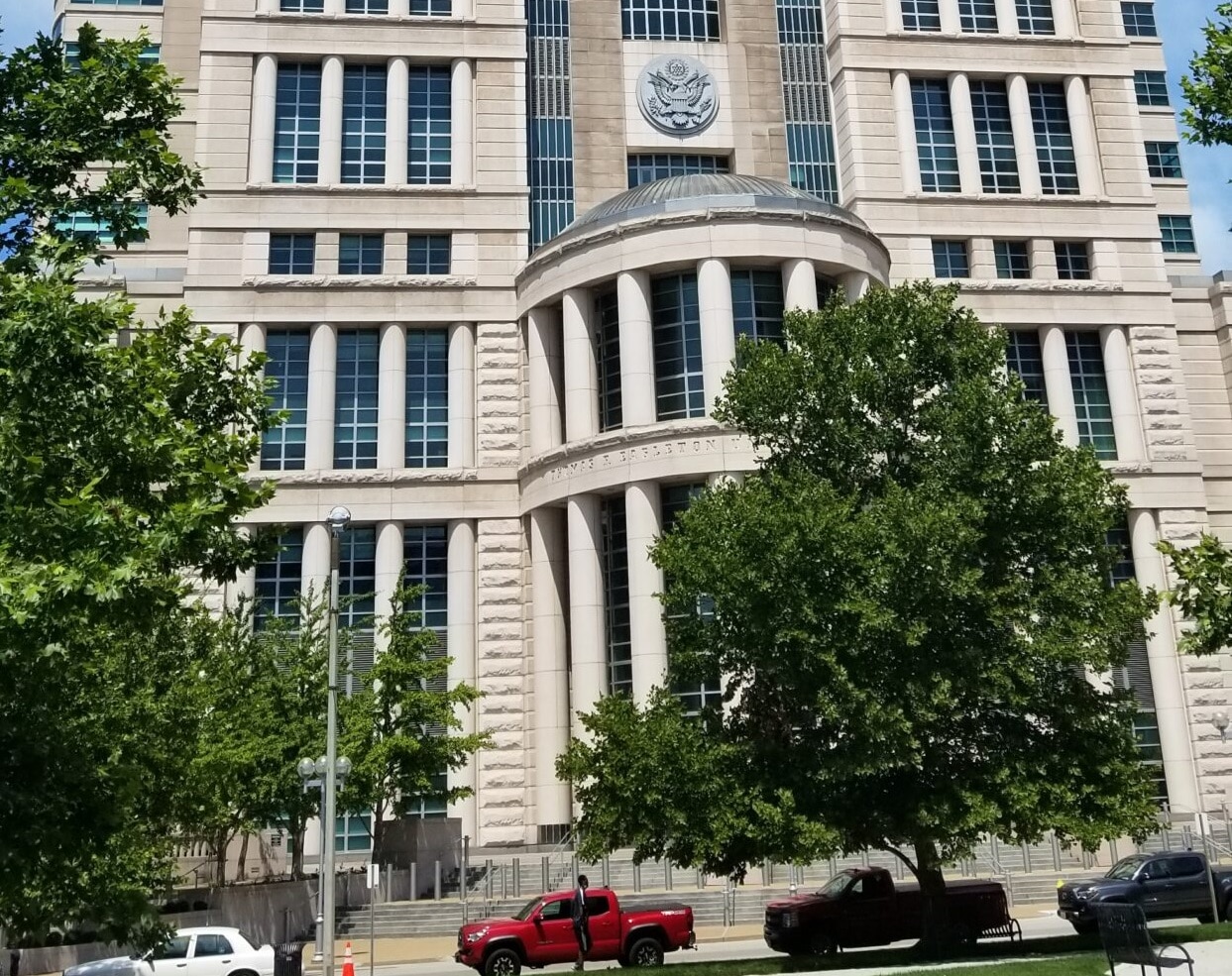ST. LOUIS (CN) — Any delay and any decrease in state desegregation funding to St. Louis public schools would have a critical impact on students, an attorney for the school system argued before the Eighth Circuit on Tuesday.
Attorney William A. Douthit, representing the St. Louis Public School District, known as SLPS, told the three-judge panel that the sales tax portion of a 1996 settlement agreement to fund desegregation programs should go solely to the district and not neighboring charter schools.
“There has been no violation alleged in a public charter school in its current iteration, therefore no funding would be proper,” Douthit said during the 40-minute hearing.
Missouri Solicitor General John Sauer countered that what SLPS is seeking goes against the plain language of the settlement.
“The plain terms of Senate Bill 781 unambiguously require the city or the school district to share a per-pupil proportion of the local sales tax revenue with the charter schools,” Sauer said.
At issue is an agreement made in 1999 that settled a decades-long school desegregation case. Under the deal, SLPS agreed to continue operating various intra-district desegregation programs while funding for the programs was to come from sales tax and amendments to the state’s school funding mechanism, with a floor of $60 million a year.
But in 2006, the state began diverting the sales tax revenue away from SLPS to nonparty charter schools.
In 2016, the school system filed a motion to enforce the settlement, seeking to force Missouri to send the sales tax revenue solely to St. Louis public schools.
A federal judge found in favor of Missouri in 2020, ruling that the charter schools were entitled to the funds if they were operating desegregation programs, which prompted the SLPS appeal to the Eighth Circuit.
Douthit argued Tuesday that the Missouri Legislature passed an amendment in its latest session that revises the section of the agreement that is the basis of the state’s position.
“That requires in addition to whatever per-pupil funds the charter schools already received from the state under the funding formula, the state will also provide to charter schools, any difference between what the local schools receive from local tax revenue,” Douthit said. “In other words, the state is now obligated by law to make up the difference for any local revenue received by the local school district.”
U.S Circuit Judge Steven M. Colloton, a George W. Bush appointee, questioned Douthit as to where that additional money would come from.
“It would be a responsibility of the state of Missouri, your honor,” Douthit said. “The plaintiffs should be made whole.”
The attorney told the panel it was clear from the beginning that the sales tax money would be used to fund desegregation remediation within the city’s public schools.
“Doesn’t that actually weaken your argue to some extent, because opposing counsel mentioned in the record...that the charter schools were intended as part of the remedy,” U.S. Circuit Judge David R. Strauss, a Donald Trump appointee, responded. “They were not segregated and so they were being used to help desegregate the St. Louis schools. So, wouldn’t it then makes sense that some of the money go to the charter schools, if in fact, they're aimed towards desegregation?”
Douthit said those funds were intended solely for the SLPS.
“Certainly, St. Louis is an anomaly,” Douthit said. “There are shared borders between charter schools and St. Louis Public. But I would state to this court that shared borders alone cannot create liability for a constitutional violation. And where there is no accusation of a violation, where there is no adjudication of a violation, no federal court remedy would be appropriate.”
Sauer countered that the sales tax was part of a global settlement and funding the charter schools was part of the deal.
Attorney Jeremy Root, of Stinson LLP, argued on behalf of the intervening charter schools.
“Those children would be firmly harmed by the relief that is being sought here,” Root told the panel. “That makes it inconsistent with the settlement agreement and absent some unambiguous provision in the settlement agreement that would entitle them to that relief.”
U.S Circuit Judge Roger L. Wollman, a Ronald Reagan appointee, rounded out the panel, which took the arguments under advisement.
The case started in 1972, when Minnie Liddell filed a lawsuit against the SLPS claiming her children’s constitutional right to a free education without regard to race was being violated by segregation mandated by Missouri law.
Until 1976, the Missouri Constitutional required separate education for Black children, according to the school district's pre-hearing brief, and when the court took up the merits of Liddell’s case in 1980 it found that St. Louis elementary and secondary schools were still segregated.
The settlement in 1996 came after years of legal wrangling.
Subscribe to Closing Arguments
Sign up for new weekly newsletter Closing Arguments to get the latest about ongoing trials, major litigation and hot cases and rulings in courthouses around the U.S. and the world.








